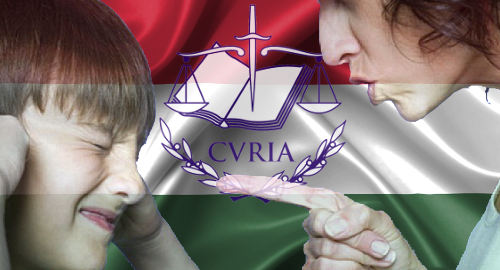 Hungary’s restrictive online gambling rules preclude the country from taking enforcement action against online gambling operators licensed by other European Union countries, according to the EU’s top court.
Hungary’s restrictive online gambling rules preclude the country from taking enforcement action against online gambling operators licensed by other European Union countries, according to the EU’s top court.
In a ruling handed down on Thursday, the Court of Justice for the European Union (CJEU) ruled that Hungary’s new online gambling regime had unlawfully excluded EU-licensed operators from the country’s licensing process. The case had been brought by the Kindred Group’s Malta-licensed Unibet brand.
In 2014, Hungary proposed allowing the nation’s brick-and-mortar casino operators to apply for online casino and poker licenses, while online sports betting would be restricted to the state-run Szerencsejáték Zrt betting monopoly. International operators protested that the proposed rules were (a) biased in favor of domestic operators, and (b) confusingly written, perhaps intentionally so.
Hungary originally failed to issue a public call for an open tender for online applicants, while also requiring would-be online licensees to have previously obtained classification as ‘trustworthy’ operators of games of chance. Trustworthy, in this case, was defined as having operated games of chance in Hungary for a minimum period of 10 years.
Unibet argued that the new rules were discriminatory because it was impossible for international operators to meet Hungary’s conditions for online licensing. Unimpressed Hungarian tax authorities ordered local internet service providers to block Unibet domains and imposed fines on Unibet’s Hungarian-facing operations.
Hungary later amended its ‘trustworthy’ definition to require online applicants to demonstrate that they’d operated games of chance in another EU member state for at least three years. However, Unibet claimed that this change wasn’t sufficiently publicized to allow it time to submit an application before Hungary closed its tender for licenses.
Unibet responded by filing suit in a Budapest court, which then asked the CJEU to weigh in on whether Hungary’s laws ran contrary to Article 56 of the Treaty and Functioning of the European Union (TFEU), which precludes member states from unnecessarily messing with the provision of cross-border trade and services.
The CJEU ruled that the 10-year ‘trustworthy’ requirement put international operators at a distinct disadvantage to Hungarian-based operators, and thus this requirement was “discriminatory and contrary to Article 56 TFEU.”
The CJEU also ruled that Hungary’s subsequent revisions to its ‘trustworthy’ definition “were not defined with sufficient precision” to allow international operators the same level of transparency enjoyed by Hungarian applicants.
Finally, the CJEU ruled against Hungary imposing fines against Unibet, saying “where a restrictive system has been established for games of chance and that system is incompatible with Article 56 TFEU, an infringement of the system by an economic operator cannot give rise to penalties.”
Maarten Haijer, secretary general of the European Gaming and Betting Association (EGBA), welcomed Thursday’s ruling, and suggested other EU member states such as the Netherlands would do well to revise their own pending online gambling regulations to ensure their compatibility with EU law.





